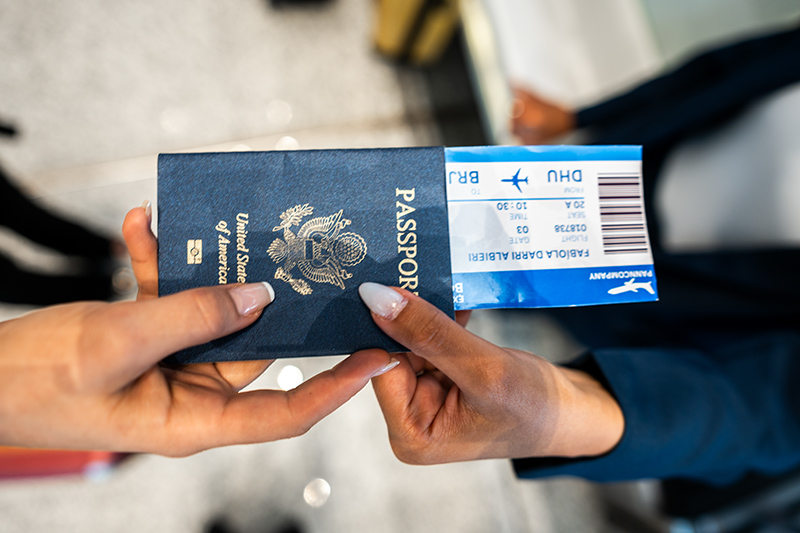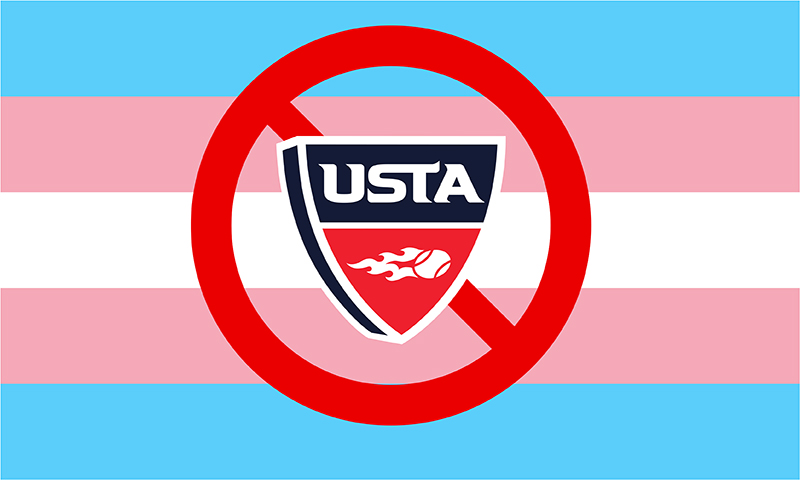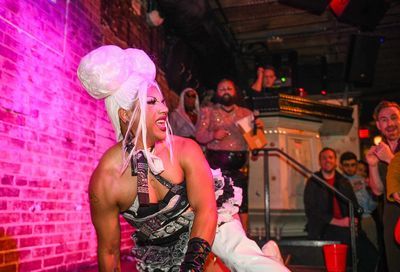Virginia College Bans Transgender Students
Sweet Briar College, a Virginia women's liberal arts college, has restricted its admissions policy to only allow cisgender women to enroll.

Sweet Briar College, a private women’s liberal arts school located outside Amherst, Virginia, has adopted a revised admissions policy banning transgender women from enrolling.
The revised policy, adopted last month, stems from the legally binding will of Sweet Briar’s founder, Indiana Fletcher Williams, who died in 1900. The college, which currently has about 460 students (known as “Vixens” due to their mascot being a female fox), is located on Williams’ estate, a former plantation. It began accepting students in 1906.
According to the college, Williams’ will said the school was intended to be a place “for the education of white girls and young women.”
The college had to get permission from a federal judge to accept Black students after the Civil Rights Act of 1964.
Sweet Briar College President Mary Pope Hutson and Mason Bennett Rummel, the chair of the board for Sweet Briar Institute, argued that the references to “girls” and “women” contained in Williams’ will “must be interpreted as it was understood at the time the Will was written.”
So, the school’s new policy, beginning with next year’s admissions class, requires applicants to confirm that their sex assigned at birth was female and that each applicant “consistently lives and identifies as a woman.”
This potentially calls into question the status of transgender men or nonbinary individuals assigned female at birth who are already attending Sweet Briar.
“Sweet Briar College believes that single-sex education is not only our tradition, but also a unique cultural and social resource,” President Mary Pope Hutson told the Associated Press in a statement.
Previously, Sweet Briar lacked a state transgender admissions policy and had handled students’ applications on a case-by-case basis.
The new admissions guidelines have been criticized by both students and faculty members, who have expressed concerns about further restricting admissions to the college at a time when many women-only institutions have been closing.
Sweet Briar nearly shuttered in 2015 due to financial constraints but was saved after former students raised more than $21 million in pledges to keep it operating.
Other critics question adhering to the strictest interpretation of a will that explicitly banned non-white students from attending, which would not be considered acceptable by today’s standards.
John Gregory Brown, an English professor and chair of the faculty senate, noted that Williams likely would never have allowed certain classes or groups of people, such as those with disabilities — just to provide one example — to enroll at the college.
Brown told the AP that the policy could chase away more liberal-leaning students who believe the college’s admissions policy is discriminatory, ultimately making it harder for the college to sustain itself.
“It really excludes any student who would be offended by those positions … who doesn’t want to be in a place where discrimination is codified in this way,” he said. “I think it’s a financially disastrous decision for the college.”
On August 10, the Sweet Briar College Student Government Association slammed the policy as “alienating” and “unnecessary,” adding that the board’s latest decree “reflects the rise of transphobia in our country.”
SGA President Isabella Paul, a senior who identifies as nonbinary, told the AP that at least 10% of the small college’s students use non-female pronouns or wouldn’t match the policy’s definition of what constitutes a woman.
“And there are allies here who may identify as women but have friends and lovers and family members who are nonbinary, genderqueer and transgender,” Paul added. “So this is also affecting their pride in their institution.”
When asked by the AP how the policy would be applied to returning students who either don’t explicitly identify as women or don’t present outwardly as women, including those that defy gender stereotypes in terms of dress and hairstyle, President Hutson dodged the question.
“[The school tries] to ensure that all of our students feel welcome on campus,” she said.
Acknowledging that at least one board member has resigned over the policy and that alumnae on both sides of the debate “care deeply about the future of our college,” Hutson nonetheless insisted that many alumnae want Sweet Briar College to “remain a place where women can thrive, and they believe that a broader [admissions] policy is a slippery slope toward co-education.”
On August 26, the faculty voted 48 to 4, with one abstention, to call on the board to rescind the new admissions policy.
Speaking on behalf of the faculty senate, Brown said that many faculty members believe the policy to be discriminatory, and were shocked by the board’s decision to adopt the new admissions policy without consulting them.
Some worry that strictly interpreting the admissions policy could lead to the expulsion or forced transfers of existing students, and bring about potential lawsuits from current students who don’t adhere to stereotypical gender norms, and therefore wouldn’t meet Williams’ definition of what constitutes a “woman.”
“That policy actually would prohibit quite a lot of the students we already have,” Brown told Lynchburg-based ABC affiliate WSET. “Many of them understand that they would not have been accepted under this policy. And that is terrible to say to somebody is, ‘Okay, you can stay here for now, but we don’t want any more people like you.”‘
President Hutson issued the following statement to WSET: “The board of Sweet Briar College has set the admissions policy and the college has nothing further to add.”
Women’s colleges in the United States numbered more than 200 in the 1960s, but have slowly faded from view as more students opt for larger public or private co-educational institutions, now numbering around 30. Due to declining enrollments, some women’s colleges began admitting transgender women about 10 years ago.
According to the Associated Press, 23 historically women’s colleges currently have policies that admit at least some trans students, while three, including Sweet Briar, ban transgender individuals from applying.
Support Metro Weekly’s Journalism
These are challenging times for news organizations. And yet it’s crucial we stay active and provide vital resources and information to both our local readers and the world. So won’t you please take a moment and consider supporting Metro Weekly with a membership? For as little as $5 a month, you can help ensure Metro Weekly magazine and MetroWeekly.com remain free, viable resources as we provide the best, most diverse, culturally-resonant LGBTQ coverage in both the D.C. region and around the world. Memberships come with exclusive perks and discounts, your own personal digital delivery of each week’s magazine (and an archive), access to our Member's Lounge when it launches this fall, and exclusive members-only items like Metro Weekly Membership Mugs and Tote Bags! Check out all our membership levels here and please join us today!



























You must be logged in to post a comment.